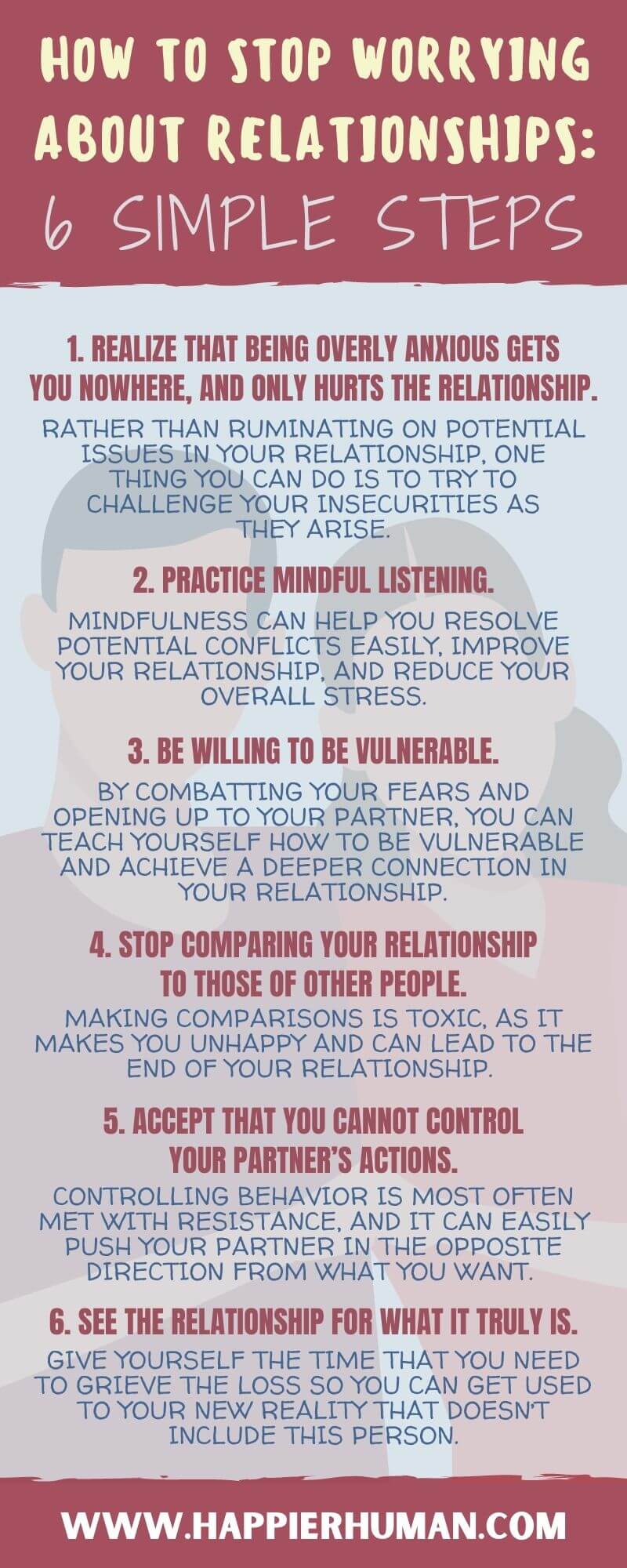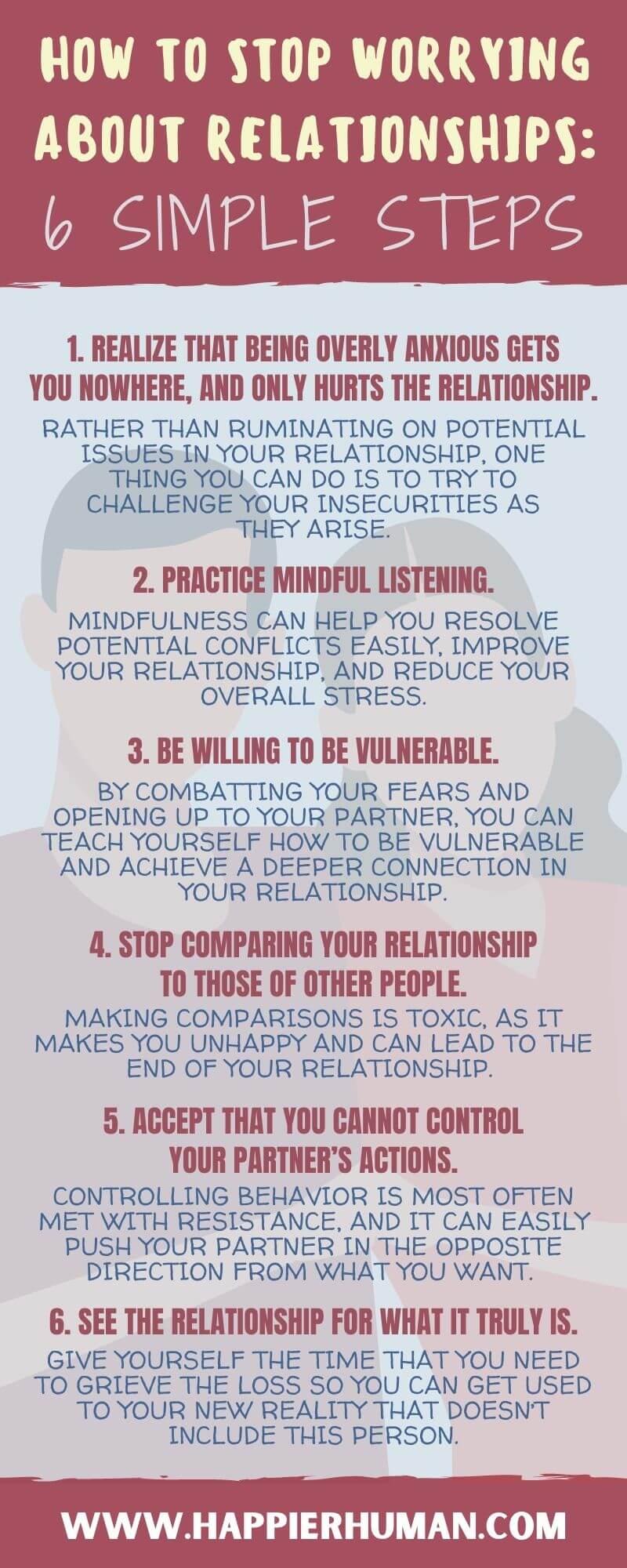
Curiosity, insecurity, and a touch of unease may seep into your mind when you notice a spark, a connection, between your partner and their coworker. It’s natural to wonder, “Should I be concerned about my partner’s relationship with their coworker?” This gripping article delves into the intricacies of navigating such a situation, exploring the causes behind these concerns and offering valuable insights to help you understand and address any apprehensions you may have. Whether it’s professional collaboration or something more, discover how to approach this delicate scenario with open communication, trust, and a dash of empathy.

This image is property of www.choosingtherapy.com.
Understanding the Context
Assessing the Situation
When it comes to assessing the situation regarding your partner’s relationship with their coworker, it is essential to approach it with an open mind and gather information before jumping to conclusions. Ask yourself if there are any specific behavior patterns or changes in your partner’s attitude that have caught your attention. It’s important to remember that having a close bond with a coworker doesn’t necessarily indicate an inappropriate relationship. Context is crucial, so take the time to understand the dynamics between your partner and their coworker.
Defining the Relationship Boundaries
One way to address your concerns is by establishing clear relationship boundaries with your partner. Open and honest communication is vital here. Sit down together and have a candid conversation about what is acceptable and what crosses the line when it comes to friendships with coworkers. Define what you both consider appropriate behavior and set boundaries that align with your values and comfort levels. This way, you can ensure that both you and your partner are on the same page regarding the expectations within your relationship.
Recognizing the Impact of Work Dynamics
Work dynamics play a significant role in understanding your partner’s relationship with their coworker. It’s essential to recognize that spending a substantial amount of time with colleagues is a normal part of most people’s work lives. This includes interacting and building connections with coworkers, which can lead to close friendships. Understanding the context in which these relationships develop and flourish is crucial in assessing the situation. Different work environments have different norms, and it’s vital to consider these factors when evaluating your partner’s relationship with their coworker.
Signs to Look out for
Increased Communication
One sign to be mindful of is an increase in communication between your partner and their coworker. If you notice that your partner is spending an excessive amount of time conversing with their coworker, whether through phone calls, text messages, or social media, it may be a cause for concern. Communication that goes beyond what is necessary for work-related matters may indicate a deeper emotional connection.
Excessive Time Together
Another sign to watch for is the amount of time your partner and their coworker spend together outside of work-related activities. If they frequently make plans to meet up outside of work hours or engage in activities that seem more personal than professional, it may signify a closer relationship than what is typical for colleagues.
Personal Topics Discussed
When personal topics beyond work-related matters are being discussed between your partner and their coworker, it may raise concerns. If you find that your partner is confiding in their coworker about intimate aspects of their life, it could indicate a level of emotional intimacy that goes beyond a professional relationship.
Emotional or Physical Intimacy
Keep an eye out for signs of emotional or physical intimacy between your partner and their coworker. If you notice that they are extremely close, share inside jokes, or engage in physical touch that surpasses normal workplace gestures, such as hugging or touching each other casually, it may be an indication that their relationship has crossed professional boundaries.
Changes in Behavior towards You
If you have noticed changes in your partner’s behavior towards you, such as a decrease in affection, less communication, or increased secrecy, it could be a sign that their relationship with their coworker is affecting your relationship. Pay attention to any shifts in their actions, as they may provide insight into the dynamics between your partner and their coworker.
Secretive or Defensive Behavior
If your partner becomes secretive or defensive when you bring up their relationship with their coworker or becomes uncomfortable discussing it, it may indicate that there is something more going on. While it’s important to approach the topic with sensitivity, it’s also crucial to recognize when your partner’s reaction seems disproportionate or defensive.
Examining Individual Factors
Trust and Insecurities
Before jumping to conclusions about your partner’s relationship with their coworker, it’s essential to examine the level of trust you have in your relationship. Insecurities and trust issues can often cloud judgment and lead to unnecessary concern. Reflect on your own feelings and assess whether any underlying trust issues may be contributing to your negative perception of the situation. Building trust within your relationship is vital in order to address any concerns effectively.
Prior History of Infidelity
If either you or your partner has a history of infidelity in previous relationships, it may understandably heighten concerns about their relationship with their coworker. Past experiences can often influence our perceptions and trigger feelings of insecurity and suspicion. It’s important to address these concerns openly and honestly, acknowledging the impact of past actions on current insecurities.
Workplace Culture and Ethics
Understanding the workplace culture and ethics of your partner’s job is crucial in assessing the nature of their relationship with their coworker. Some work environments may have a more relaxed culture where close friendships are common, while others emphasize professional boundaries. Familiarize yourself with the expectations and norms of your partner’s workplace, as this will provide valuable context when evaluating their relationship.
Personal Boundaries and Values
Each individual has their own set of personal boundaries and values when it comes to relationships. It’s important to consider these factors when assessing your concerns about your partner’s relationship with their coworker. What may be acceptable to one person may be crossing boundaries for another. Reflect on your own values and communicate them with your partner to ensure that you both have a clear understanding of what is considered appropriate within your relationship.
Communication and Emotional Connection
Another individual factor to consider is the overall communication and emotional connection between you and your partner. Assess the quality of your relationship and the level of emotional connection you share. If you feel that your own emotional needs are not being met or that there is a lack of open communication, it’s important to address these concerns. Often, understanding and improving the communication within your relationship can alleviate concerns about your partner’s relationship with their coworker.
Open Communication and Transparency
Expressing Your Concerns
Open and honest communication is essential when addressing concerns about your partner’s relationship with their coworker. Start by expressing your feelings and observations in a non-confrontational manner. Use “I” statements to convey how their actions make you feel without placing blame. Let your partner know that you are coming from a place of love and desire to strengthen your relationship.
Encouraging Honest Conversations
Encourage your partner to share their perspective on the situation as well. Create a safe space for them to express their thoughts and feelings without fear of judgment. Let them know that you genuinely want to understand their connection with their coworker and how it may be impacting your relationship.
Establishing Relationship Values
As you engage in open communication, it’s important to establish and reinforce the values within your relationship. Discuss what both of you consider appropriate behavior when it comes to friendships with coworkers. By aligning your relationship values, you can create a framework that guides your actions and expectations.
Setting Mutual Boundaries
Establishing clear and mutually agreed-upon boundaries is crucial in addressing concerns about your partner’s relationship with their coworker. Together, determine what actions or behaviors are acceptable and what crosses the line. By setting boundaries that respect both partners’ needs and comfort levels, you create a foundation for trust and a sense of security within your relationship.
Building Trust and Reassurance
Building trust and offering reassurance is an ongoing process when addressing concerns about your partner’s relationship with their coworker. It’s essential to follow through with your commitments, demonstrate consistency, and act in ways that foster trust. Reassure your partner of your love and commitment to the relationship, emphasizing that your concerns stem from a place of care and a desire to protect and strengthen your connection.

This image is property of media.npr.org.
Seeking Professional Advice
Relationship Therapist or Counselor
If concerns persist and impact your emotional well-being or the overall health of the relationship, seeking the guidance of a relationship therapist or counselor can be beneficial. A professional can provide objective insights, facilitate open dialogue, and offer tools to help navigate through complex emotions and challenging situations.
Individual Therapy
In addition to couples therapy, individual therapy can also be helpful in addressing personal fears, insecurities, or past traumas that may be contributing to concerns about your partner’s relationship with their coworker. A therapist can provide guidance and support as you work through these individual factors and develop strategies for building self-confidence and managing difficult emotions.
Empowered Workshops or Seminars
Consider attending workshops or seminars focused on empowerment and personal growth. These can provide valuable insights and tools for managing emotions, building resilience, and enhancing self-esteem. Taking steps to invest in your own personal development can positively impact your relationship and help you navigate through challenging situations more effectively.
Navigating Difficult Emotions
Addressing Jealousy and Insecurity
Jealousy and insecurity are common emotions that can arise when concerned about your partner’s relationship with their coworker. It’s important to acknowledge and address these emotions in a healthy and constructive manner. Openly communicate your feelings to your partner and work together to identify triggers and develop coping strategies that promote emotional well-being.
Managing Fear of Betrayal
Fear of betrayal can be a significant concern when evaluating your partner’s relationship with their coworker. It’s important to address this fear directly and openly. Trust-building activities, such as open communication, setting boundaries, and reassurance, can help alleviate these fears. Additionally, remember to take into account the level of trust you have in your partner based on their actions and behavior throughout your relationship.
Cultivating Self-Confidence
Cultivating self-confidence is crucial in addressing concerns about your partner’s relationship with their coworker. Focus on self-care and engage in activities that boost your self-esteem. Surround yourself with supportive friends and family who can provide encouragement and validation. Investing in your own personal growth and well-being will strengthen your ability to navigate difficult emotions and maintain a healthy perspective.
Developing Emotional Resilience
Developing emotional resilience is key to navigating the challenges that may arise from concerns about your partner’s relationship with their coworker. This involves building inner strength and the ability to bounce back from setbacks or difficult emotions. Practice self-care routines, engage in stress-reducing activities, and cultivate a positive mindset. Building emotional resilience will not only help you navigate through the current situation but will also benefit you in other areas of life.

This image is property of ideapod.com.
Workplace Etiquette and Communication
Understanding Professional Boundaries
Understanding and respecting professional boundaries is important when assessing your partner’s relationship with their coworker. Encourage open conversations with your partner about workplace expectations and norms. Help each other navigate the line between professionalism and personal connections to ensure that both of you maintain healthy boundaries in the workplace.
Promoting a Respectful Work Environment
Promote a respectful work environment by setting an example through your own behavior. Treat your partner’s coworker with kindness and respect, displaying professionalism and a genuine interest in their contributions to their job. By fostering a positive work environment, you create a space where appropriate relationships can flourish while maintaining a sense of professionalism.
Maintaining Professionalism
Encourage your partner to maintain professionalism when interacting with their coworker. Remind them of the potential consequences that can arise from crossing professional boundaries, such as damage to their reputation or career. By emphasizing the importance of maintaining professionalism, you empower your partner to make conscious choices that support the wellbeing of both your relationship and their work life.
Encouraging Healthy Co-worker Relationships
Acknowledge the importance of fostering healthy relationships with coworkers. Encourage your partner to maintain boundaries while still cultivating positive and supportive connections with those they work with. Emphasize the value of a collaborative work environment where friendships can thrive without compromising personal relationships.
Assessing the Relationship
Reflecting on Emotional Connection
Take the time to reflect on the emotional connection between you and your partner. Evaluate whether your emotional needs are being met within the relationship and if there is still a strong bond between you. Consider how your partner’s relationship with their coworker may be impacting the emotional connection you share.
Evaluating Trust Levels
Evaluate the level of trust you have in your partner and your relationship. Assess whether your concerns about their relationship with their coworker are rooted in tangible evidence or if they stem from personal insecurities or past experiences. Open and honest communication is crucial in evaluating and building trust.
Considering Relationship Satisfaction
Reflect on the overall satisfaction and happiness within your relationship. Ask yourself if you are fulfilled emotionally, mentally, and physically. Consider whether your concerns about your partner’s relationship with their coworker are symptoms of underlying issues within the relationship, or if they are specifically related to this particular situation.
Assessing Overall Compatibility
Assess the overall compatibility you and your partner share. Consider your shared values, goals, and interests. Evaluate whether your concerns about their relationship with their coworker are isolated incidents or if they are indicative of a broader mismatch in priorities and boundaries.

This image is property of www.happierhuman.com.
Decision-making and Next Steps
Reevaluating Priorities and Expectations
Reevaluate your priorities and expectations within the relationship. Reflect on what you need to feel secure and fulfilled. Consider whether your concerns about your partner’s relationship with their coworker are aligned with your values and the kind of relationship you desire. Clarifying your own priorities will guide you towards making decisions that are in line with your needs.
Discussing Desired Relationship Changes
Initiate a conversation with your partner to discuss any desired changes within the relationship. Express your concerns and discuss potential solutions or compromises that could improve the situation. Aim to find a middle ground that respects both your needs and those of your partner.
Exploring the Option of Couples Therapy
If the concerns about your partner’s relationship with their coworker persist and impact the overall health of the relationship, consider exploring couples therapy. A professional therapist can provide guidance, facilitate communication, and help you and your partner navigate through challenges. Couples therapy can be a valuable tool in resolving conflicts and fostering a stronger partnership.
Considering Individual Growth and Development
Take time to focus on your own personal growth and development outside of the relationship. Engage in activities that bring you joy and allow you to grow as an individual. Cultivate your own interests, friendships, and hobbies. By fostering personal growth, you not only bring a positive energy to the relationship but also increase your own self-confidence and resilience.
Moving Towards Resolution
Taking Action Based on Open Communication
Moving towards resolution requires taking action based on open communication and the insights gained from your discussions. Follow through with the decisions made together and ensure that both you and your partner actively work towards fostering a healthy relationship.
Maintaining Mutual Respect and Trust
Maintaining mutual respect and trust is crucial in the resolution process. Continually reinforce the values established within your relationship and support one another as you navigate through challenges. Consistency and open communication will help rebuild any trust that may have been strained.
Implementing Agreed-Upon Boundaries
Implement the boundaries and guidelines established through open communication. Hold each other accountable for respecting these boundaries, recognizing that both partners play a role in maintaining a healthy relationship dynamic.
Monitoring the Progress over Time
Monitor the progress of your relationship over time. Evaluate whether the changes you implemented have positively impacted the concerns you had about your partner’s relationship with their coworker. Remember that relationships take time and effort to grow and evolve, so be patient as you monitor the progress and make further adjustments if necessary.
In conclusion, concerns about your partner’s relationship with their coworker can be valid, but it is crucial to approach the situation with open communication, understanding, and respect. Assess the context, recognize signs to look out for, and examine individual factors that may contribute to your concerns. Prioritize open communication, establish clear boundaries, and build trust and reassurance within your relationship. Seek professional advice if necessary and work on nurturing your own emotional well-being. Remember that a healthy relationship requires ongoing effort, and with open communication, mutual respect, and trust, it is possible to address and resolve concerns about your partner’s relationship with their coworker.






